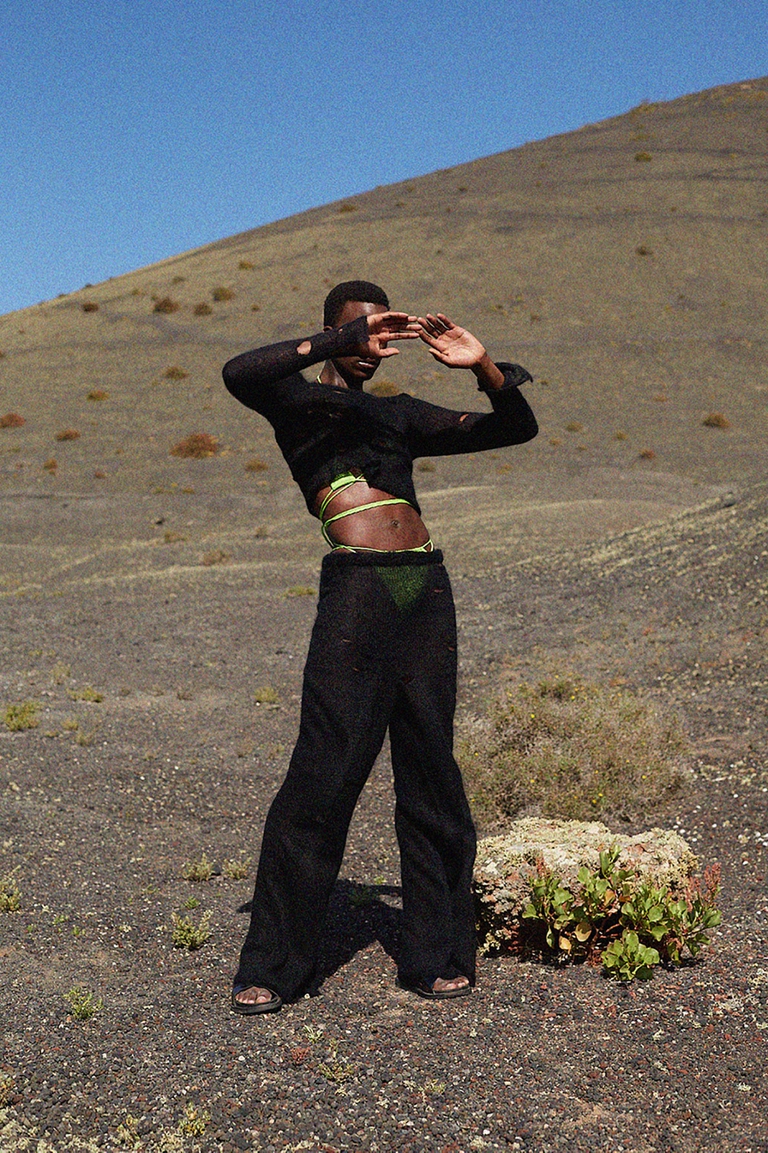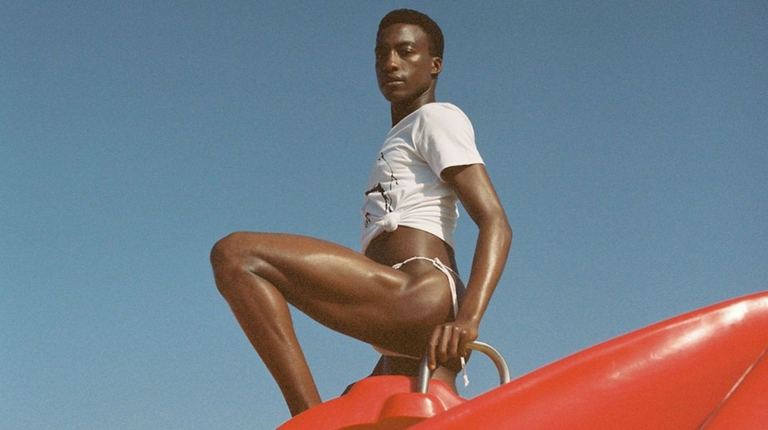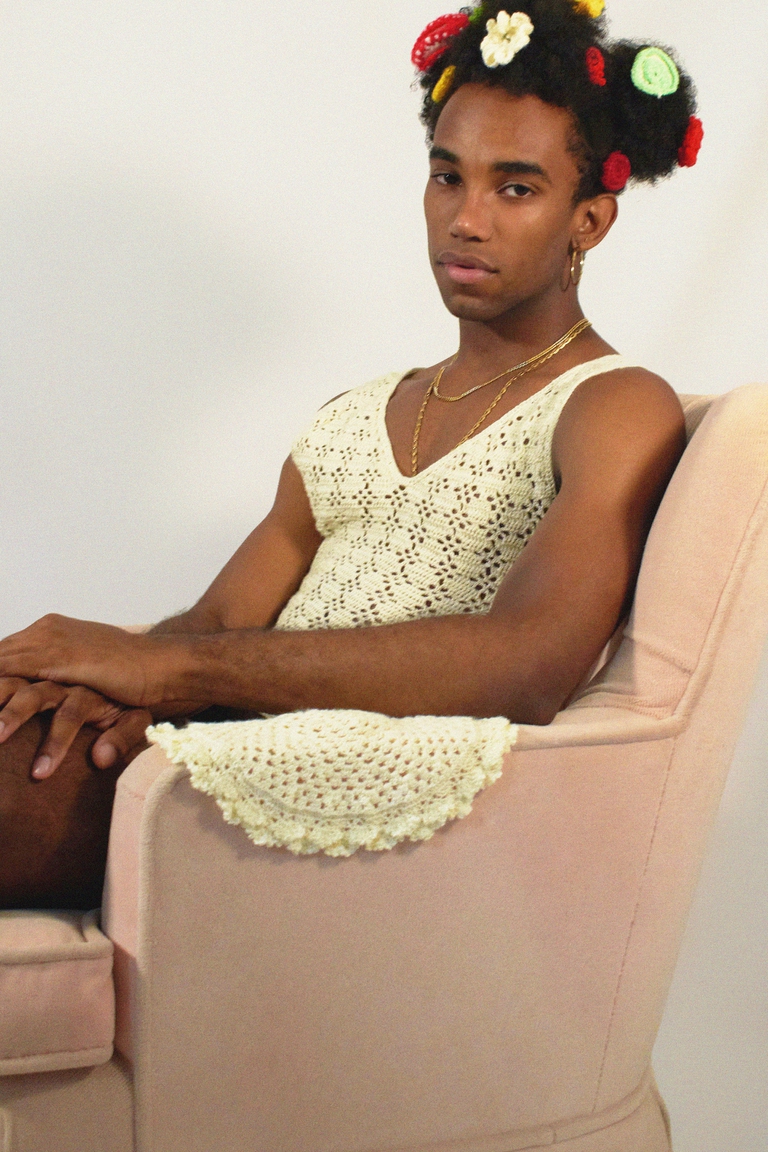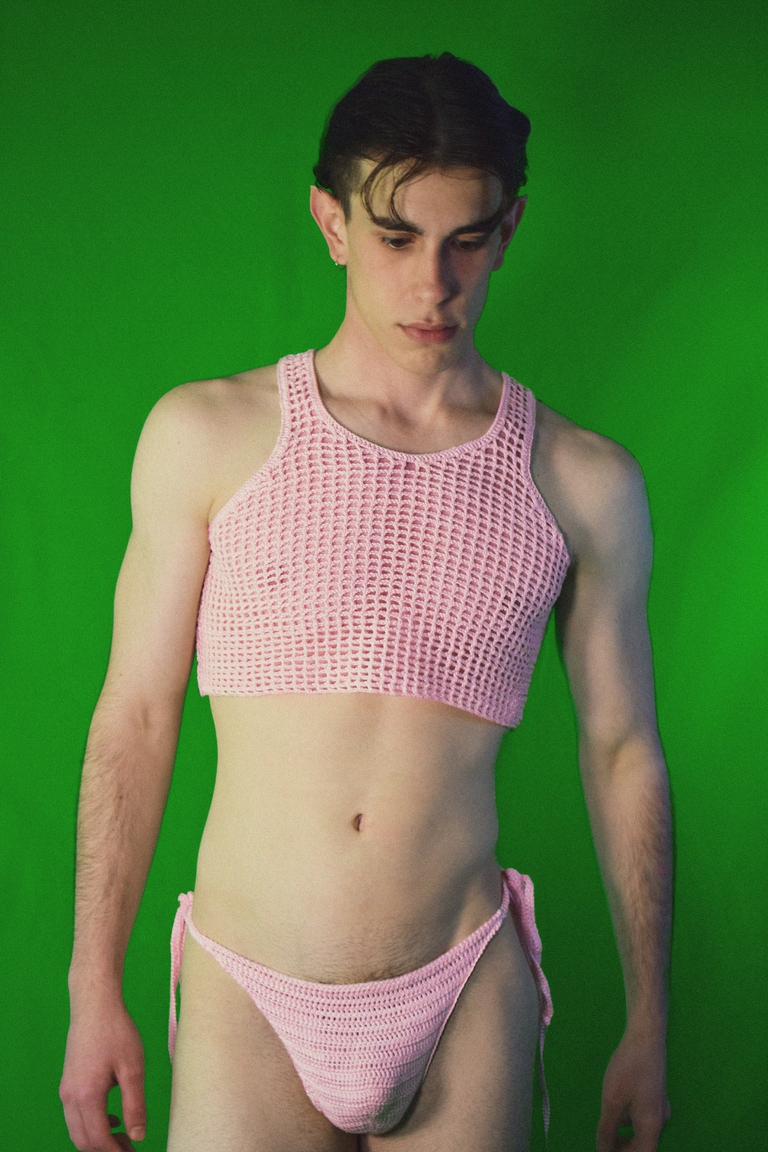https://www.lifegate.it/afrika-project-il-brand-che-vuole-ampliare-il-significato-di-lingerie
- |
Lingerie is a term that we are used to associating withfeminine semantic universe:here is the goal of the Spanish brand Africa Project is to give a new meaning to this word, demonstrating how anyone and any type of body has the right to feel good in their underwear, even if it is crocheted and what it covers is a male body.In the case of Africa Project the lingerie is in fact handmade by artisans:the brand's other objective is to reclaim the weavers' work, the labor of love that mothers and grandmothers do.“We wanted to reinvent the classic crochet bedspread that adorns the family sofa and use it as sexy lingerie” explain the two founders, Agoney G.and Steff Adams.“Afrika is the grandmother who has always woven for love and who helped us create the first pieces of our brand”.

Afrika Project is what the world of underwear was missing
The brand focuses on knitwear and lingerie, what unites these two segments and which one does it identify with the most?
Our idea is to transform a craft like hand weaving, taking it out of its traditional orthodoxy and ferrying it into the realm of sexy.We identify with both things, we not only produce crochet lingerie, but also sweaters, tops and trousers.We do not rule out making lingerie with other types of materials other than crochet in the future:right now we are in a phase of experimentation and verification of what we want to focus on.
What was the starting point from which you began to address an ethical discussion on lingerie?What do you think this specific segment is missing today?
From the beginning we were clear that we wanted a brand that represented our values when it came to clothing consumption.That is to say the use of environmentally friendly materials, but also fair working conditions for those who weave the garments and the creation of clothes that last over time.Today's lingerie often falls short of representing or catering to a wide variety of groups:this includes people with different gender identities and sexual orientations, as well as those looking for versatile, environmentally friendly lingerie.The industry tends to focus on a narrow concept of beauty and often ignores the diversity of bodies and desires.This leaves many consumers without options that reflect who they really are and what they want from their intimate apparel.

Sustainability is also a linguistic and image issue
What are the biggest difficulties you encountered in proposing your idea of lingerie?
First find eco-friendly animal-friendly wools dyed with natural dyes:it wasn't as easy as we expected.The market for suppliers of these materials is a kind of little hidden treasure but, given that more and more brands are becoming environmentally conscious, we gradually realized how much this segment is growing.It's great to be part of an industry changing in this direction.And then there's that word:“lingerie”.People often associate this word with women's underwear:some take the trouble to write to us to tell us we are confused.They tell us there is no lingerie for boys:we remind them that language is a living and flexible tool that is constantly evolving.Our interpretation of “lingerie” is simple:these are sexy garments for anyone who wants to wear them, regardless of gender.We are not trying to impose labels, but to open the door to genderless fashion in a world where individual expression is fundamental.And, why not, we like to think that we are helping to update the meaning of an old word.

Gender and size are hot topics when it comes to lingerie.How do you plan to work to make this segment more inclusive?
Everything we produce is handmade:Even though we have standard sizes in our online shop, we always ask our customers if they want to give us their measurements to create a more personalized garment:in Afrika Project we weave for all body types.For us, the "male" body is in fact just a channel of communication and beauty to tell stories and, since it is still the subject of a whole series of preconceptions that must be broken down, we use the image of our brand to place emphasis and create tension around the concepts of masculine, feminine and clothing in general.

The political commitment of the brand
What is your commitment from the point of view of environmental and social sustainability?
Naturally we have a political and ethical commitment, and I don't think we can start a project of this nature without taking into account the social context in which we find ourselves.Our goal is to achieve higher levels of equality and fairness in the distribution of wealth, without a sustainable production system there can be no equality.For this reason Afrika Project goes beyond fashion, it is also a political project that seeks to generate both wealth and equality:for our brand and for the people we work with.We don't understand the fashion world as it is:for us everyone from the producer, to the worker, up to the final consumer must benefit from the supply chain.We believe that the biggest challenge that fashion is facing today is precisely that of addressing a political discourse that places equality between people and respect for the environment at the center.
